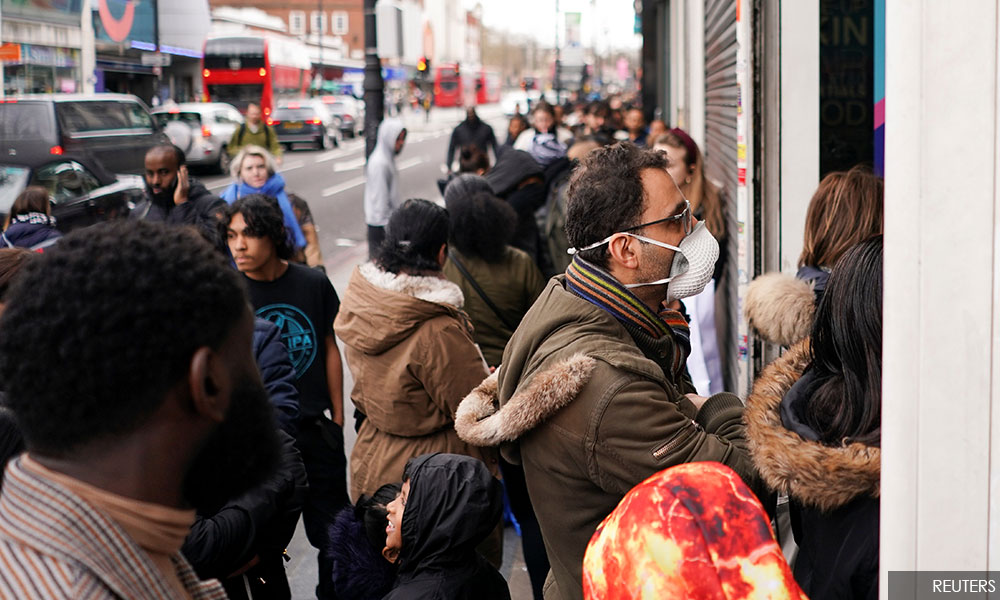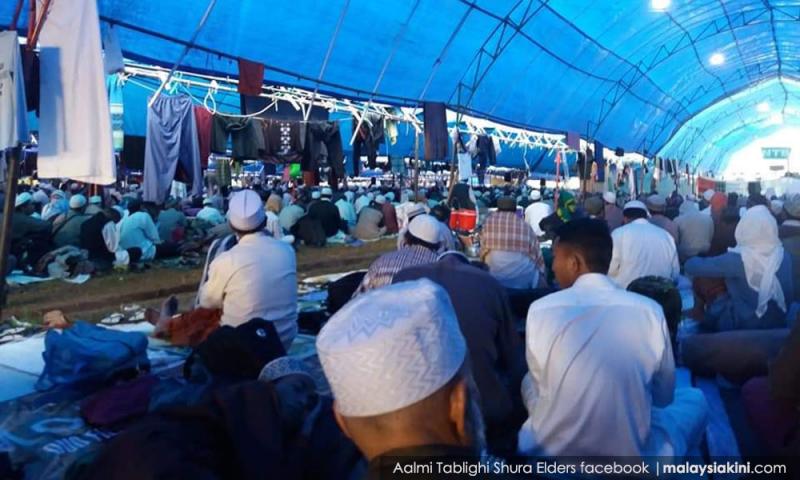Party-goers, religious followers and us: whose rights should prevail?
LETTER | As the world struggles with the rapid spread of Covid-19, some choose to be ignorant. We all react differently to stressful situations. How we respond to the Covid-19 outbreak can depend on many reasons, for instance, our backgrounds and the community we live in.
A YouTube video on spring breakers partying in Miami, Florida prompted me to pen down my thoughts. “If I get corona, I get corona… At the end of the day, I’m not going to let it stop me from partying. We’ve been waiting for Miami spring break for a while,” a young man in the video is heard saying, referring to the coronavirus.
The video caused public outrage since it was put online. This shows the struggle that some cities have to face in efforts to get their people to take the pandemic seriously.
For many of us in Malaysia, we have been following news of how the 16,000-strong religious gathering in the Sri Petaling mosque complex led our country to the movement control order for two weeks starting March 18. The struggle to contain infections linked to religious practices underscore the conflict of some who wish to uphold their religious rights in fighting a pandemic.
Neighbouring countries such as Singapore, Cambodia, Thailand and Brunei have reported cases that traced back to the gathering. Early this week, a 34-year-old Malaysian man who attended the event died, one of the only two fatalities here. It was also reported that some of the worshippers who attended the event have refused to be tested, preferring to rely on God to protect them.
The party-goers and religious followers defend their individual rights to continue to do what they think they should be allowed to do. Around the world, many of us also have expressed our anger and frustration with such actions.
In one of my recent tweets related to the initial decision by the Selangor Islamic Religious Department (Jais) not to close the mosques and allow activities to continue, which the latter has since been retracted, one netizen responded that I should be more understanding because in times of uncertainty, people lean on their faith, and that it is not ignorance as how I called it in my tweet.
Amid a global pandemic where everyone is calling for social distancing as a key tool in the fight against its spread, some party-goers and religious followers find this an irrational call, as they claim it is a form of “violation” on their freedoms.
But the issue here is, we are facing a public health crisis, and so, when the rights of individuals and communities clash, whose should prevail?
Around the world, while restrictions have continued to tighten, we continue to see public gatherings in countries with reported cases. For instance, recently, some 1,500 Catholics attended an ordination mass for a new bishop in Indonesia’s Manggarai, despite restrictions on mass gatherings over fear of the outbreak as reported by Jakarta Post.
In Canada, despite the announcement from Prime Minister Justin Trudeau of the extraordinary measures against the outbreak, people continue to gather in big numbers at Kitsilano Beach.
Similar ignorance can be found in the United Kingdom, where it has come under fire after several large-scale concerts and sporting events went ahead amidst the pandemic and escalating cases. Many were shocked to see pictures of concerts of Welsh band Stereophonics last week. Facing worldwide criticism, the band’s spokesman continued to defend their decision.

As an individual, we all have the freedom of expression and of assembly. But as part of the communities, like individuals, we also have rights. Collectively, we are entitled to protection from threats to our health and safety. This is when these two categories of rights clash, where we need to balance between the questions of liberty and security.
Is there an inherent conflict between individual and collective rights as popularly raised? I would think it is not necessary to view it in a way that someone must lose in relation to this pandemic. Unfortunately, these debates are too often based on confused notions about the meaning of collective rights. In the midst of the chaos with Covid-19, there needs to be wise accommodation between liberty and security for common good.
We see some countries appear to be having more success in controlling it, such as Hong Kong and Taiwan. While calls have intensified for social distancing measures, we should always remember that as we do physical distancing, we do not lose social solidarity.
A community is a group of people with common interests and values. As time goes by and new cases keep rising around the world, we all need to realise the community responsibilities that we have, that is, our obligations to the community which are cooperation, respect and participation.
Every right has a corresponding duty, and it is the responsibility of the individual to watch over a community to make sure that standards are objective and beneficial to the human race.
To the party-goers and religious followers who insist that it is their right to have public gatherings, my question to you is, what happens when your wishes conflict with what is in your best interests?
Here we are facing issues that can arise when the rights of individuals’ conflict with population benefits. Within the ideas of rights and fundamental freedoms is also the idea of responsibilities. The world today needs all of us to cultivate the collective responsibility to reduce Covid-19 transmission and to flatten the curve of the outbreak.
The writer is a senior lecturer at the Department of International and Strategic Studies, University of Malaya.
The views expressed here are those of the author/contributor and do not necessarily represent the views of Malaysiakini.
RM12.50 / month
- Unlimited access to award-winning journalism
- Comment and share your opinions on all our articles
- Gift interesting stories to your friends
- Tax deductable
